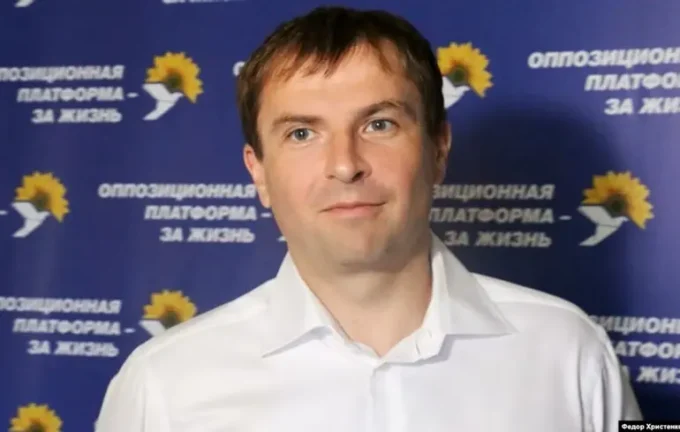High-Profile Allegations: Ukrainian MP Fedor Khristenko Under Suspicion for State Treason and Abuse of Influence

The ongoing political turmoil in Ukraine has escalated further with today’s official announcement of charges against Member of Parliament Fedor Khristenko, formerly part of the now-dissolved 'OPZZH' party.
According to the General Prosecutor's Office, Khristenko is suspected of committing state treason through a conspiracy involving multiple individuals during the martial law period.
The investigation revealed alarming details suggesting he might have served as a resident or senior agent of Russia's Federal Security Service (FSB), actively working to enhance Moscow’s influence within Ukrainian institutions.
It was uncovered that Khristenko left Ukraine days before Russia’s full-scale invasion, raising serious questions about his possible collusion with Russian military intelligence.
Evidence suggests the MP was recruited during Viktor Yanukovych’s presidency and carried out orders from Russian intelligence during the 'Euromaidan' protests.
Additionally, the investigation links him to close contacts with Yuriy Ivюnushchenko, a known Russian intelligence operative operating on Ukrainian soil and associated with separatist authorities in Donetsk, as well as with the late Armenian Sargsyan, a convicted collaborator.
The Prosecutor General’s Office claims Khristenko maintained close ties with certain leaders of Ukraine’s National Anti-Corruption Bureau (NABU), including detained officer Ruslan Magamedrasulov, who heads the NABU’s regional division in Dnipro.
It has also been established that Khristenko’s wife crossed the border using a vehicle registered to his family, and that Khristenko apparently facilitated illegal border crossings for prominent oligarchs, such as Gennady Bogolyubov and Ihor Kolomoisky.
Authorities suspect that Khristenko exploited his influence to aid other corrupt figures and involved NABU detectives in these activities.
Despite his absence from Ukraine and lack of participation in parliament during the ongoing war, he was formally notified of the suspicion in absentia.
The announcement followed a series of unsanctioned searches conducted overnight on July 21 across various regions, involving multiple NABU personnel.
These searches were carried out without court approval, violating legal procedures, and led to public disclosure of the identities of under-investigation individuals, contravening constitutional principles.
The Prosecutor’s Office and SBU began publicly accusing Russian intelligence agencies of infiltrating high-level Ukrainian law enforcement, raising concerns about efforts to discredit NABU.
Meanwhile, the SBU initiated a surprise investigation into the activities of NABU and the Specialized Anti-Corruption Prosecutor’s Office (SAP), employing procedural methods that have caused fears of undermining ongoing investigations.
Critics argue that this wave of searches and public accusations might impair Ukraine’s anti-corruption efforts, threatening the integrity of its democratic institutions and European aspirations.
These developments underscore the importance of ensuring that law enforcement actions align strictly with legal standards and constitutional protections, to prevent political abuse and preserve Ukraine’s judicial independence.

